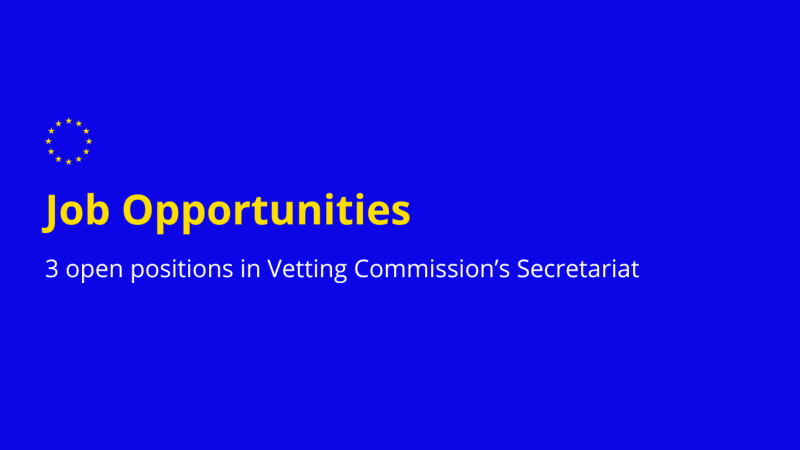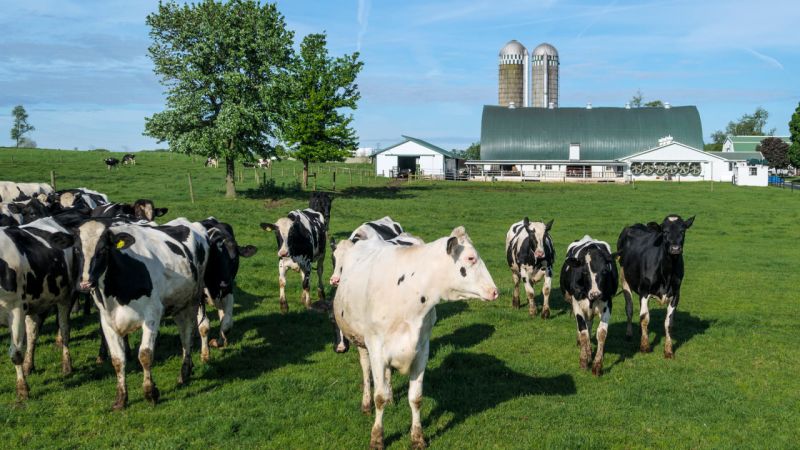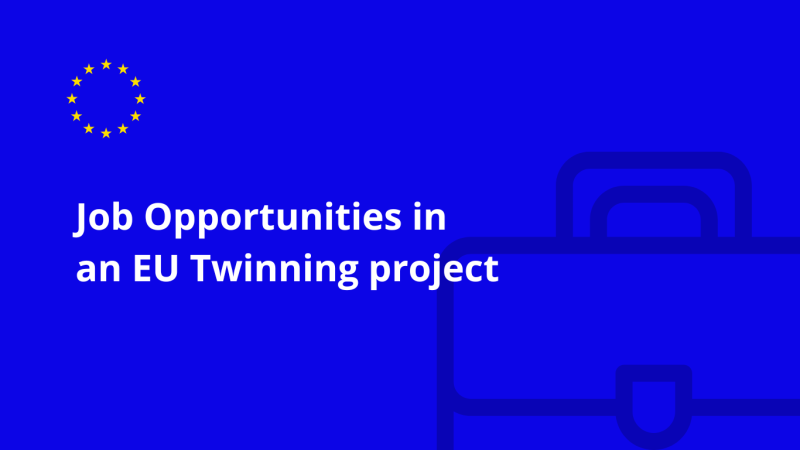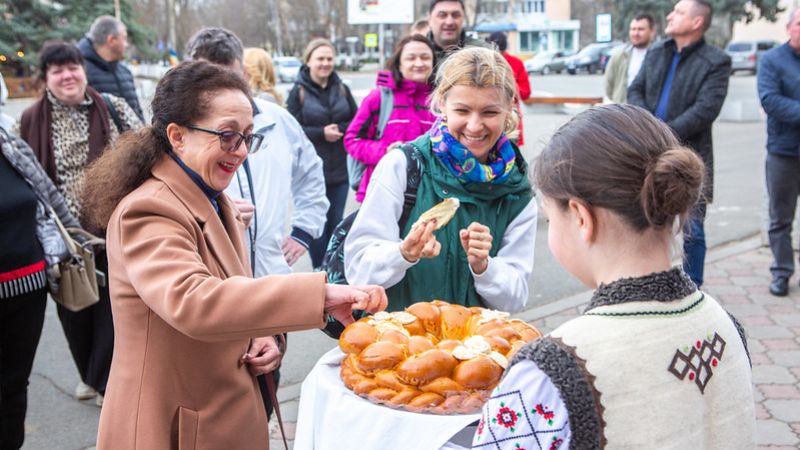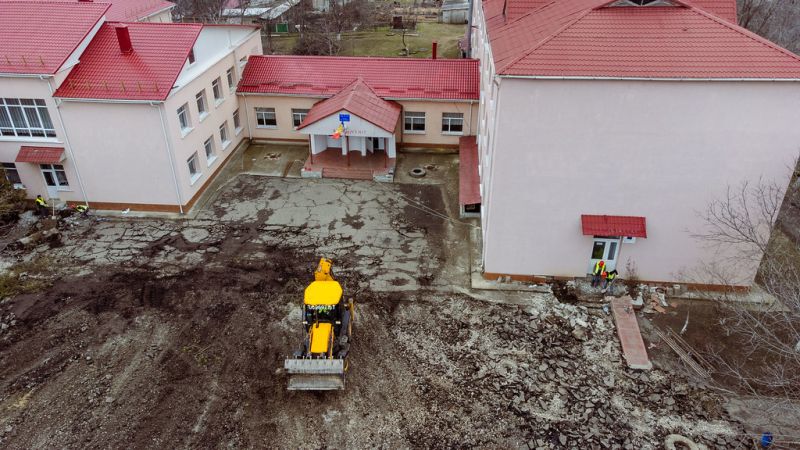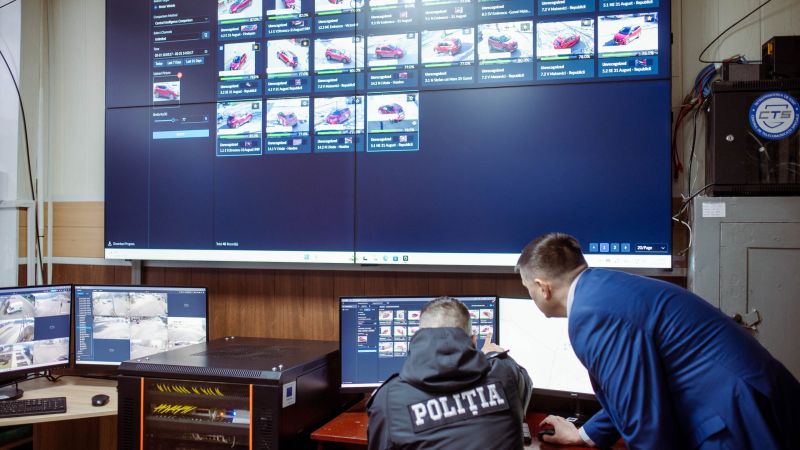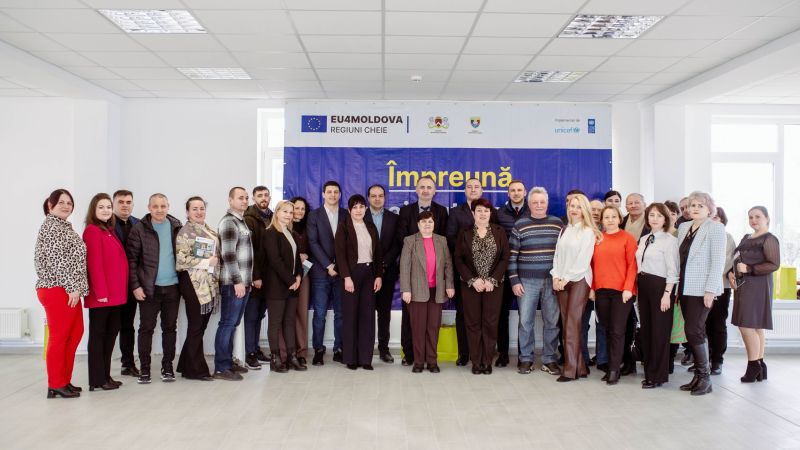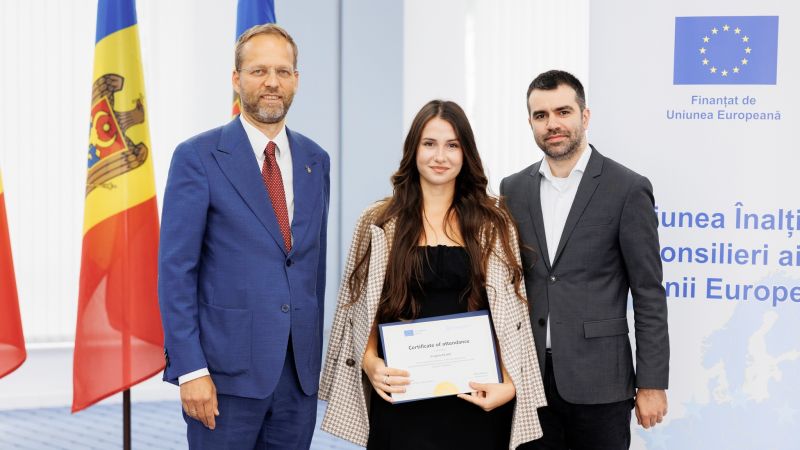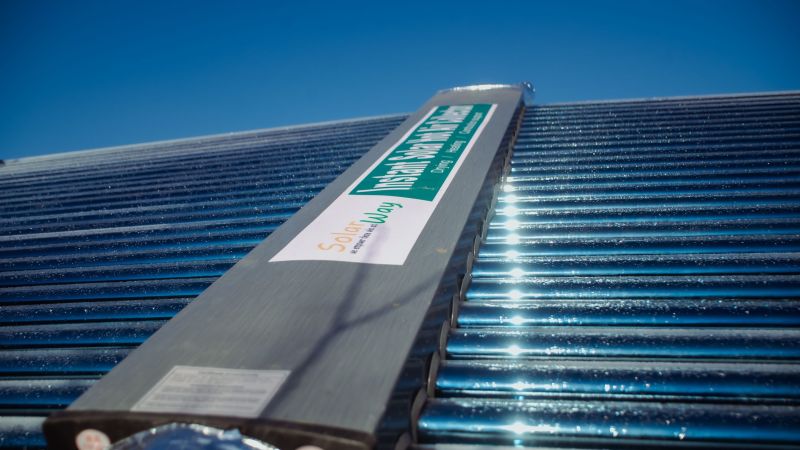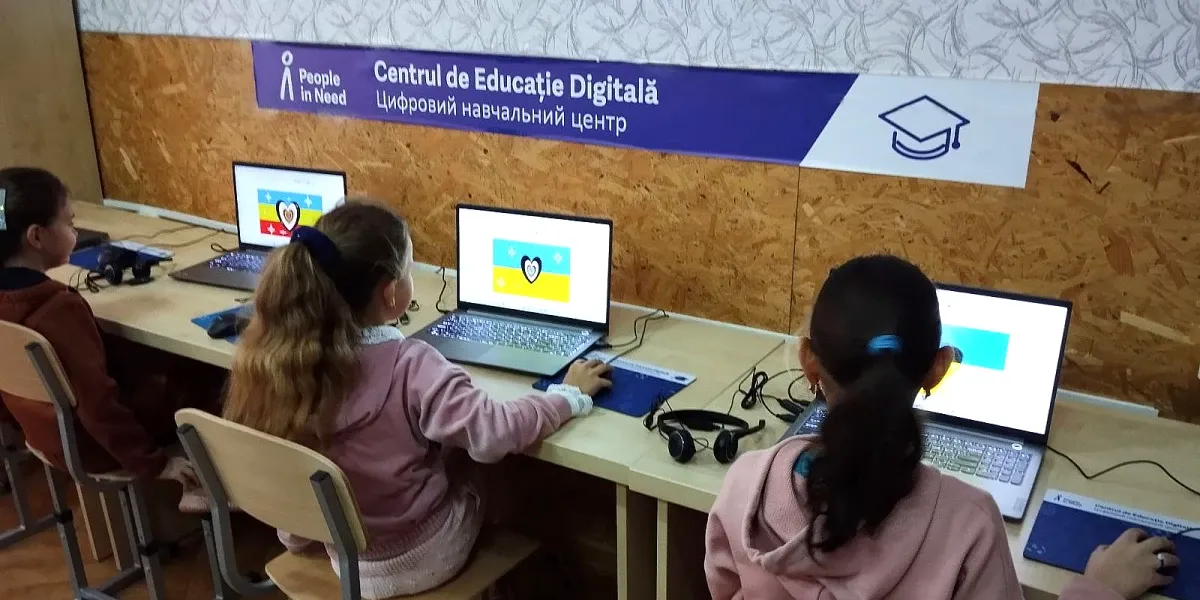
Ukrainian Resilience through Education: A Ukrainian teacher helps refugee children continue their education
Love for children and education knows no boundaries, even in wartime. Our colleague Yuliia Stetskaia, a trained teacher, employed by People in Need Moldova as a facilitator at the Digital Education Centre in the village of Calaracheuca, Ocnitsa district, demonstrates this by her own example. From the first day of the hostilities, Yuliia, together with her family, fled from the border town of Mohliv-Podilskii and settled in the north of Moldova. There, she helps Ukrainian children to continue their education, even if they are far from home. Her story is a sad but inspiring one and confirms how much solidarity matters, especially in crisis situations.
Two years ago (24 February 2022), awakened by the sound of alarms announcing the beginning of the Russian invasion, Yuliia didn’t think twice. She didn’t think about luggage, material things… She took only her two daughters and hurried across the Dnister to reach the Republic of Moldova as quickly as possible. Her primary objective at that moment was to save her children from Russian missiles. Did it occur to Yuliia that by crossing the Otaci bridge she was leaving her home for such a long time? No, she had no idea. Like millions of Ukrainians who were forced to leave their homes, she hoped she would be able to return home soon. On that cold morning, it didn’t even occur to her that she would have to live in another country for two years already.
“In the morning, at about 07:00 I was startled out of sleep by the sirens. It was the moment when our life changed radically. We didn’t take anything with us, not even many thoughts we didn’t have then. All I could think about was how to protect my children. We were going into the unknown, we didn’t know what awaited us in another country and what new challenges fate would prepare for us”, Yuliia painfully recalls.
Once they realized that their return to Ukraine was indefinitely postponed, Yuliia’s family began the difficult process of adjusting to a new place to live. Unfamiliar with the Romanian language, without much money and without many necessities, the family began to build their lives in a new reality. At the same time, the children needed to continue their education in one way or another. Although Yuliia always wanted her daughters to learn in their mother tongue, she had to make the decision to enroll them in a Moldovan school. Unfamiliar teaching language, differences in the curriculum and probably a lot of stress made this “experiment” fail.
“The most difficult was for my eldest daughter Ivanka, who was 13 at the time. She tried to fit in at a local school, but it was complicated for her. That’s when we made the decision to switch to online education in Ukraine,” says Yuliia.
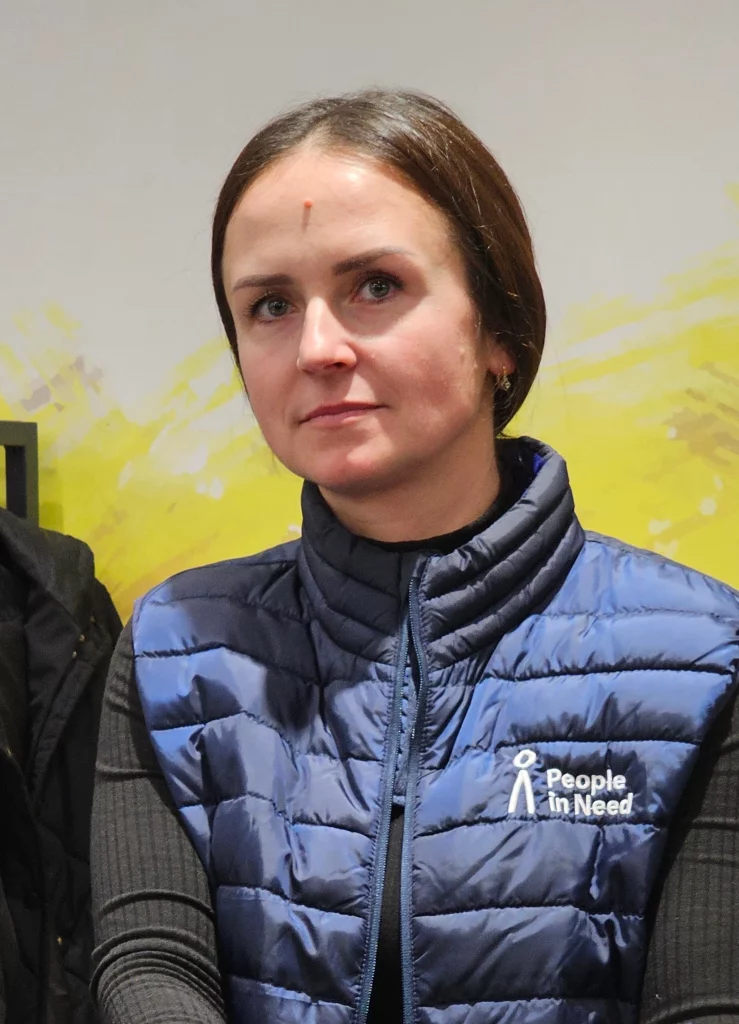
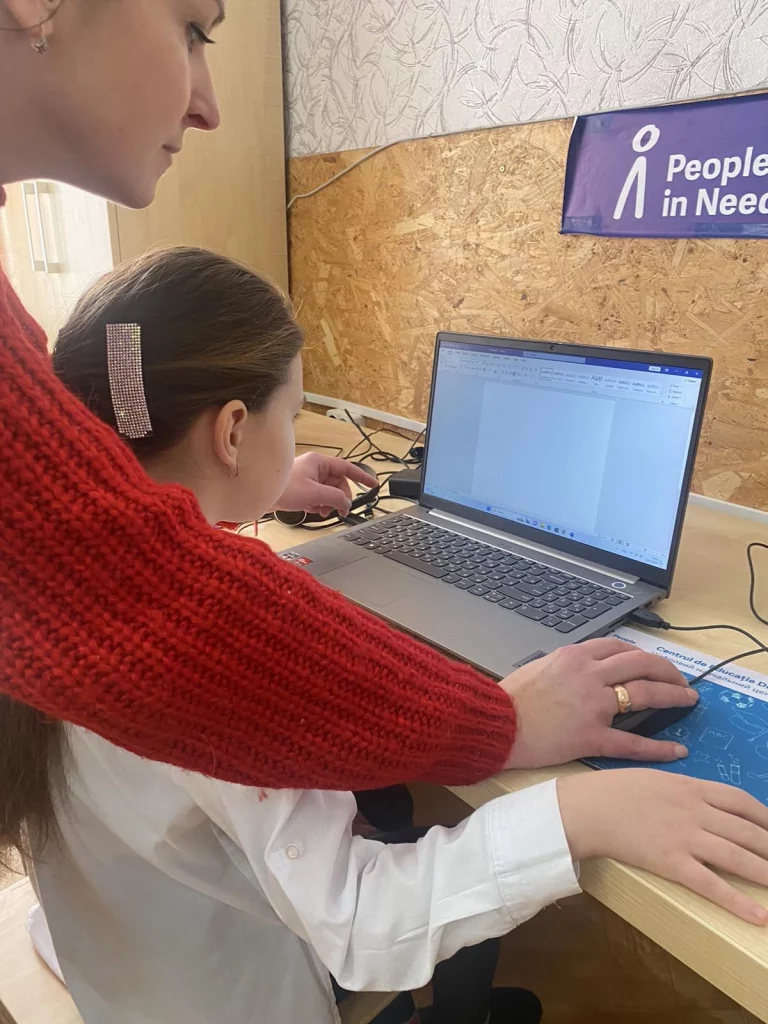
Knowing from her own experience the difficulties in the educational process faced by refugee children, and having studied to be a teacher, Yuliia wanted very much to be useful, to be able to help Ukrainian schoolchildren to obtain the necessary knowledge even in these complicated conditions. People in Need gave her this opportunity. Thanks to European Union funding, our organisation has opened several Child-Friendly Spaces and with the support of donations from the Czech people, Digital Education Centres. Yuliia found herself at one of these centres, where she helps dozens of children, including her daughter, to continue their education at a high level.
“I was very happy, when I saw the job advertisement in one of the refugee groups on social media. It was an opportunity, which I exactly wanted. Plus, now I have the opportunity to spend more time with Ivanka. She is still learning at our center. Although she has always been very capable, now, under my direct supervision, her achievements have improved even more,” says Yuliia with a slight smile.
In addition to her work with children at the Digital Education Centre, Yuliia supports our team in other projects aimed at improving the lives of those who have fled war.
One of the recent activities, that Yuliia offered to help with, was the campaign “Winter gives warmth”, part of the PLACE project, funded by the European Union and implemented by People in Need Moldova in consortium with NRC and Acted. The campaign involved providing over 600 Ukrainian and Moldovan children with winter clothes and shoes. Knowing how hard it is to be a refugee in a foreign country and how important this help is for those on very modest incomes, Yuliia was keen to get involved and help her compatriots and vulnerable families in local communities. Together with other colleagues from PIN Moldova, she accompanied parents and children from the north of the country to one of the shops, where she helped them choose winter clothes. It was yet another opportunity for her to feel useful and to do something welcome for both her countrymen and the community, which hosted her.
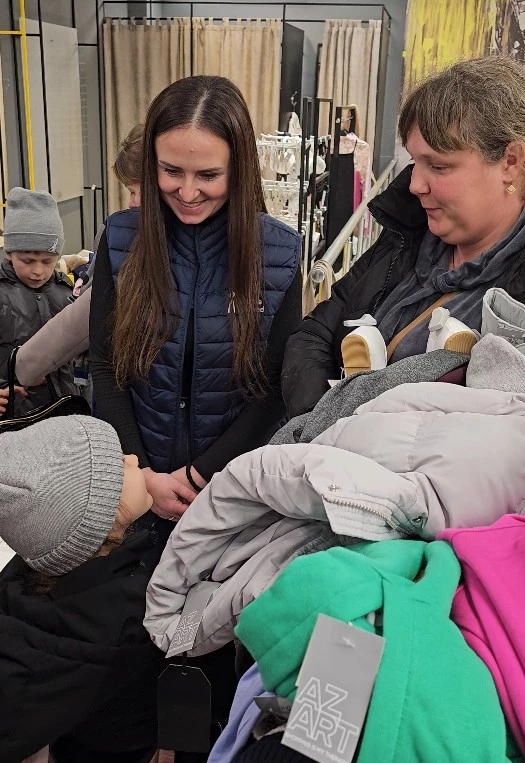
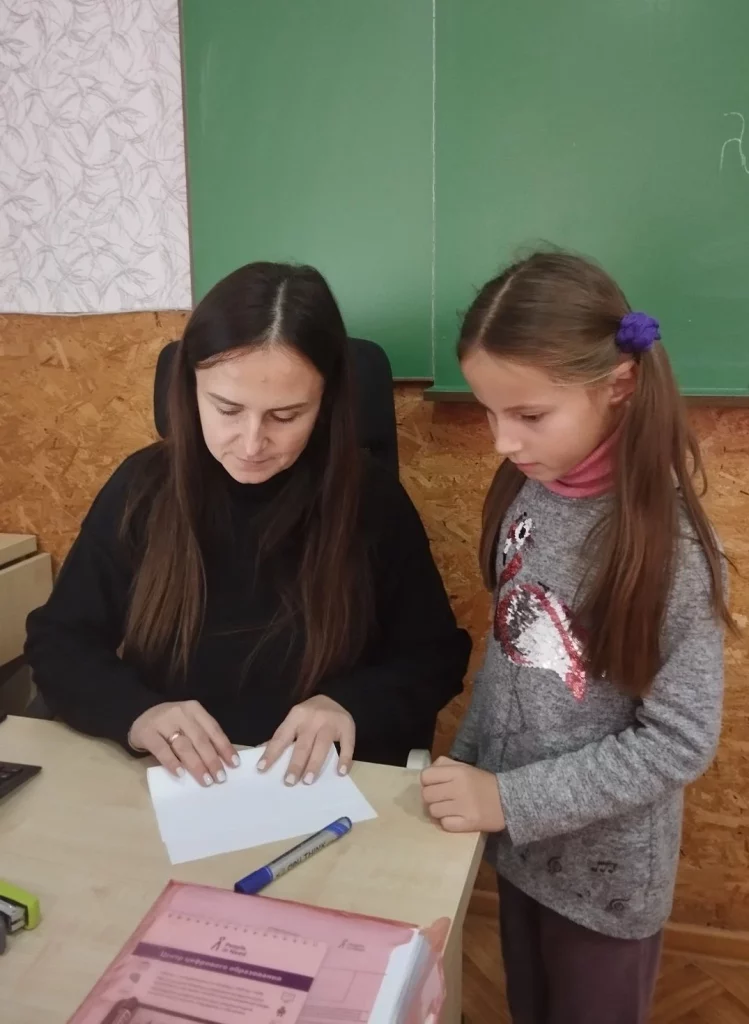
Yuliia appreciates the work of People in Need for the opportunity to provide and receive help for children in need. Although she wants to see them return home to Ukraine as soon as possible, she knows that parting will be difficult.
“I’ve become very attached to the children, it’s like they’re already mine. It will be very hard for me without them,” says Yuliia.
When she talks about her biggest dream, she, of course, talks about ending the war as soon as possible, but at the same time, she doesn’t fail to mention education.
“Like all Ukrainians, I wish very much for the war to end as soon as possible and for everyone to be able to return home. I wish that the children can return to their schools, to their desks as soon as possible…”, says our heroine in a slightly trembling voice. “And then, when that happens, I very much hope, that those who learn in our centres, will not have a gap in their knowledge”, concludes Yuliia, as her eyes begin to shine with tears.
The material is produced in the framework of the PLACE project, funded by the European Union through the EU’ Humanitarian Aid and represents a multi-sectoral humanitarian response in support of Ukrainian refugees and vulnerable households in the Republic of Moldova.

Autor: Dmitrii Vosimeric
